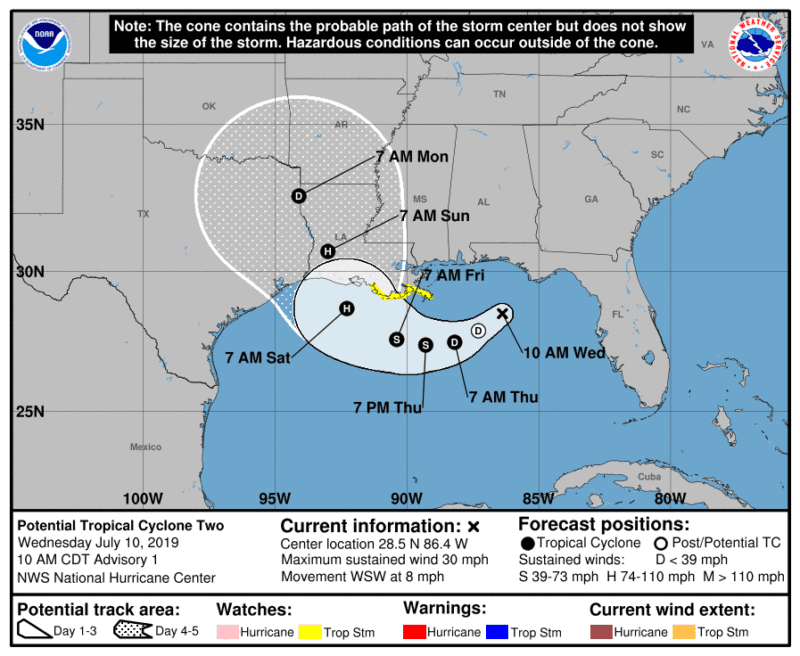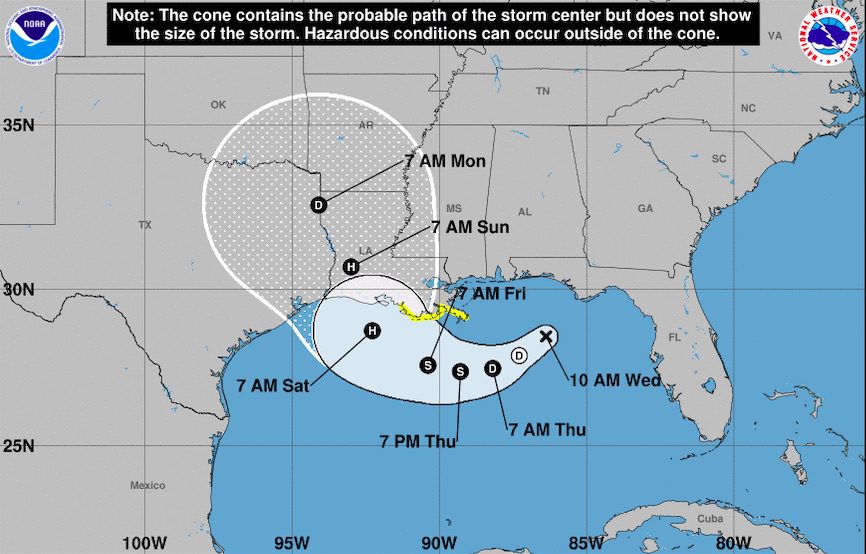
By Brian K. Sullivan and Mike Jeffers (Bloomberg) –A potential cyclone could become Hurricane Barry before slamming into Louisiana by Saturday, putting at risk oil and natural gas production in the U.S. Gulf of Mexico.
The system is about 170 miles (275 kilometers) from the mouth of the Mississippi River, the U.S. National Hurricane Center said in an advisory at 11 a.m. New York time. It could turn into a tropical storm by Thursday and grow to a hurricane in the heart of offshore oil and natural gas production by Friday, according to the agency.
Tropical storm watches are in place along the Louisiana coastline, while energy producers in the Gulf of Mexico began evacuating workers and shutting in output as the system gathers strength off of Florida. The storm could drop up to a foot (30 centimeters) of rain, with some areas getting 18 inches.
Gulf Storm Races Through the Gulf
“Additional tropical storm or hurricane watches could be issued later today or tonight west of Morgan City,” Stacy Stewart, a senior hurricane specialist at the center, wrote in a bulletin. In addition to wind, the system is expected to swamp coastal areas of Louisiana with a life-threatening storm surge.
Chevron Corp. said Tuesday that it began shutting in five of its platforms in the Gulf and is starting to evacuate all associated personnel. Royal Dutch Shell Plc slightly reduced production on two platforms and is evacuating non-essential personnel. BP Plc and Exxon Mobil Corp. also began removing offshore personnel.
About 250,000 barrels a day is immediately affected by the potential storm, and an additional 700,000 barrels a day could be at risk, Anastacia Dialynas, an analyst at BloombergNEF, said in an email Wednesday.
The Gulf offshore region accounts for 17% of U.S. crude oil output and 5% of dry natural gas, according to the Energy Information Administration. More than 45% of U.S. refining capacity and 51% of gas processing is along the Gulf coast.
“Tropical storm or hurricane watches likely to be issued across the northern Gulf,” Jim Rouiller, chief meteorologist at the Energy Weather Group in Philadelphia, said in an email. “This will spark widespread shut-ins across the entire production region.”
© 2019 Bloomberg L.P

 Join The Club
Join The Club












